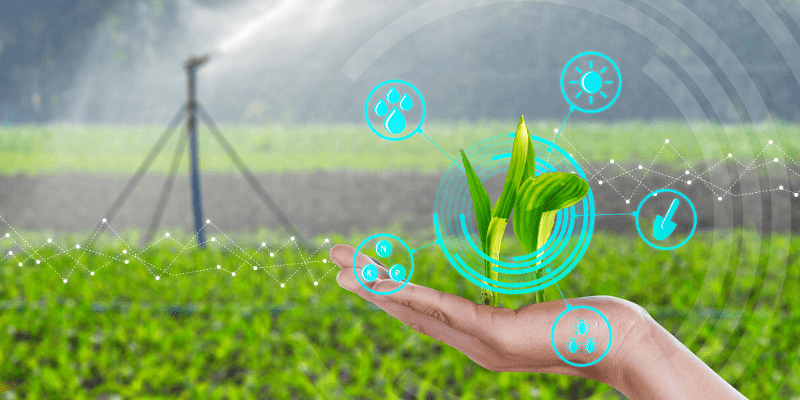
When leading supermarket chains including Tesco, Asda, Morrisons, and Aldi implemented rationing on tomatoes, peppers, cucumbers, lettuce, and staple fruits in February 2023, the residents of London were reminded of the food scarcity they experienced during the pandemic outbreak. While disruptions in the supply chain were the cause of concern three years ago, the current shortage can be attributed to adverse weather conditions in Spain and North Africa.
There is a prevailing notion that developed nations are shielded from food shortages while the burden falls primarily on the developing world. However, the current shortfall stems from our inability to anticipate and proactively address global-scale challenges. The global food system is now in jeopardy, and if we do not take decisive action, the situation will deteriorate further.
Let’s look at the strategies that will drive the agri-food ecosystem on the right path:
Increase agricultural productivity
There is an urgent need to transform farming practices, increase investments in research and development, and provide farmers with access to digital tools, credit, and better markets. Out of the estimated 600 million farms worldwide, most are smallholder farms struggling to earn a living. Enabling these guardians of food with advanced technologies and monetary incentives is the need of the hour.
Transformation in the food system will yield benefits only with grassroots-level upliftment. The world can learn a lot from the efforts of the ‘Alliance for a Green Revolution in Africa (AGRA),‘ which has positively impacted the lives of millions of smallholder farmers with digital tools across Ghana, Nigeria, Burkina Faso, Mali, Tanzania, and Mozambique.
Farm-to-fork traceability
Food wastage at the farming/cultivation stage is a critical issue that demands immediate attention. Factors such as climate change, pests, diseases, inefficiencies in harvesting, and post-harvest handling contribute to significant crop losses before reaching the market. This wastage depletes valuable resources and exacerbates food insecurity and environmental degradation.
Precision agriculture, leveraging technology, and data-driven insights present a viable solution by optimising farming practices, minimising crop losses, and improving resource management. By tackling food loss at its source, we can make substantial progress toward building a more sustainable and equitable food system.
a. By utilising satellite-based farm monitoring and providing real-time advisories to growers, we can significantly reduce wastage in the cultivation process.
b. IoT-enabled connected farming solutions and digital dashboards offer end-to-end traceability, empowering farmers, suppliers, processors, and retailers to manage the supply chain and minimise food loss efficiently.
c. Advanced AI models have reached maturity, allowing us to predict and anticipate pest and disease outbreaks in advance.
d. Implementing soil sensors for real-time soil health monitoring is a game-changer in preventing crop losses.
The work done by Loacker in Italy is phenomenal in digitising the hazelnut value chain and gaining complete control over their inventory, supply chain and fulfilment, and improving transparency in farm operations.
Climate change, the biggest spoiler
Climate change is the biggest challenge that is putting food production and security at risk, and its impacts will likely intensify. Addressing climate change through mitigation and adaptation strategies such as investing in climate-smart agriculture, promoting renewable energy, and reducing greenhouse gas emissions is critical for survival.
Today, agritech interventions can address or even reverse the adverse effects of climate change. It can bring a huge impact by selecting the right seed and crop, choosing the ideal sowing and harvesting time, managing water scarcity, and adopting the best farming practices. By monitoring soil conditions, water usage, and weather parameters, climate-smart agriculture helps farmers to get the best possible yield during extreme weather conditions.
On the other hand, agriculture is also the most significant contributor to environmental degradation, with the sector responsible for over one-third of global greenhouse gas emissions. Farmers must be trained and incentivised to adopt climate friendly farming practices such as carbon farming and carbon sequestration, which help in the long-term storage of atmospheric carbon in soil, plants, and micro-organisms. Globally, agriculture is the only sector that can be transitioned into a carbon net-zero emissions sector with the optimal usage of resources and adopting climate-smart agriculture practices.
There is a classic success story in the Indian sub-continent by World Bank, helping farmers counter the impact of climate change across 200+ villages, covering 77 crop varieties across climate zones. As an outcome, 92% of farmers could demonstrate climate-resilient agricultural practices, resulting in over 30% average increase in yield and productivity.
In conclusion, tackling the global food crisis requires a multi-pronged approach that addresses the root causes of food insecurity. By leveraging technology to help farmers make better decisions, increase crop yields, and improve overall farm productivity, agritech is helping to feed a growing global population sustainably and ethically.
As the UN Secretary-General António Guterres said, “Together, we must move from despair to hope and action. On World Food Day and every day, I call on you to be part of the change”. Yes, it is time to drive a mass movement and reshape the food system with Agriculture 4.0.
(Krishna Kumar is the Co-founder and Chief Executive Officer of Cropin, an agritech pioneer that has developed Cropin Cloud.)
Edited by Kanishk Singh
(Disclaimer: The views and opinions expressed in this article are those of the author and do not necessarily reflect the views of YourStory.)









![Read more about the article [Funding alert] MoEVing closes $5M in seed capital from angels to fuel growth](https://blog.digitalsevaa.com/wp-content/uploads/2021/12/moeving-1639553095584-300x150.png)
